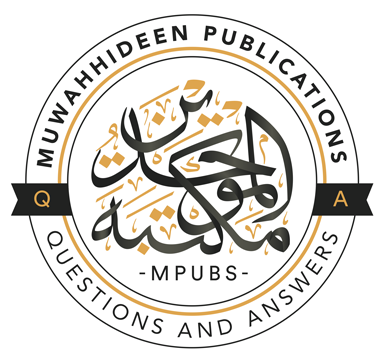Pivotal Excerpt
❝…the Khawārij appeared from ʿIraq, the Shiīʿah, the Rawāfiḍ, the Bāṭiniyah, the Qadariyah, the Jahmiyah, the Muʿtazilah, and many of the deviant sects appeared from ʿIraq. This does not mean that everyone in ʿIraq is like that. The Prophet ﷺ was referring to the fitan that occurred there because there were also many righteous people from ʿIraq.
We have to be aware of the corrupt interpretation of Al-Najd that is offered by the Ṣūfīs who want to attack the daʿwah of tawḥīd, the call to monotheism of Shaykh al-Islām Al-Mujaddid Muḥammad ibn ʿAbdul Wahhāb (رحمه الله). They twist and distort the meaning and say that Najd in these aḥādīth refers to Saudi Arabia.❞
Question and Answer [4:31 Mins]
 Question:
Question:
I have a question regarding the ḥadīth about the devil’s horns coming from Al-Najd and the Prophet’s ﷺ refusal to ask Allāh to bless Najd because Al-Barakah (blessings) comes from Allāh (عز وجل) alone. I have heard that this ḥadīth refers to Iraq. Is this true? If so, how do we know it is referring to Iraq and not the current-day Najd?
Answer:
The questioner is referring to the ḥadīth of the Prophet ﷺ which is muttafaqun ʿalayhi, where he said, on the authority of Ibn ‘Umar (رضى الله عنه):
عن ابن عمر قال: قال: اللهم بارك لنا في شامنا، وفي يمننا قال: قالوا: وفي نجدنا؟ قال: قال: اللهم بارك لنا في شامنا وفي يمننا قال: قالوا: وفي نجدنا؟ قال: قال: هناك الزلازل والفتن، وبها يطلع قرن الشيطان
“O Allāh! Bless our Shām and our Yemen.’ And the people said, ‘And in our Najd?’ He said, ‘O Allāh! Bless our Shām and our Yemen.’ And the people said, ‘And in our Najd?’ He said, ‘There will appear earthquakes and tribulations, and from there will come the horn of the devil.” [Saḥīḥ Bukhārī 1037]
We have to understand Al-Najd in this ḥadīth based upon the other authentic aḥādīth that exist. Obviously, the logistic location, is what was considered Al-Najd from Madīnah at that time. If we look in versions of this ḥadīth, there is an authentic ḥadīth that clearly mentions that the prophet ﷺ said, on the authority of Ibn ʿAbbās (رضى الله عنه):
اللهم بارك لنا في شامنا ويمننا. فقال رجل من القوم يا نبي الله وفي عراقنا . قال : إن بها قرن الشيطان
“O Allāh! Bless our Shām and our Yemen. A man from the people said, “O Messenger of Allāh! And our ‘Iraq?” He said, “Indeed there is the horn of the devil….” [At-Tabarani 1204]
This mentions ‘Iraq specifically, and this ḥadīth is authentic. So, we see that Al-Najd is referring to ʿIraq and the surrounding areas. This was also mentioned by Al-Khaṭṭābī (رحمه الله), who was quoted and cited by Al-Ḥafiẓ Ibn Ḥajar (رحمه الله) in his classical explanation of Al-Bukhāri, Fatḥul Bārī. Al-Khaṭṭābī (رحمه الله) said, “As for the people of Al-Madinah, their Najd would be Al- ʿIraq and the surrounding areas.”
The reasons the Prophet ﷺ highlighted that many fitan (tribulations and afflictions) will appear from Al-ʿIraq.
For example, the Khawārij appeared from ʿIraq, the Shiīʿah, the Rawāfiḍ, the Bāṭiniyah, the Qadariyah, the Jahmiyah, the Muʿtazilah, and many of the deviant sects appeared from ʿIraq. This does not mean that everyone in ʿIraq is like that. The Prophet ﷺ was referring to the fitan that occurred there because there were also many righteous people from ʿIraq.
We have to be aware of the corrupt interpretation of Al-Najd that is offered by the Ṣūfīs who want to attack the daʿwah of tawḥīd, the call to monotheism of Shaykh al-Islām Al-Mujaddid Muḥammad ibn ʿAbdul Wahhāb (رحمه الله). They twist and distort the meaning and say that Najd in these aḥādīth refers to Saudi Arabia.
Look at the danger of al-hawá – desires.
One of the fundamentals of Ahl Al-Sunnah is what? Our belief is in accordance to the text. Whereas the people of innovation, they have a belief, and then they look to justify it with texts, even if that requires them distorting the meaning of the texts of the Book of Allāh and the sunnah of the Prophet ﷺ because every person of innovation distorts the correct meanings of the texts.

